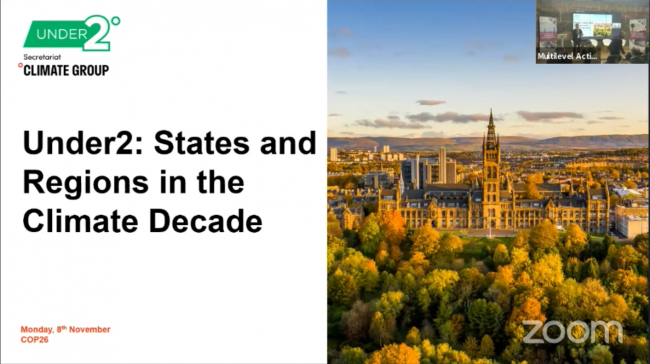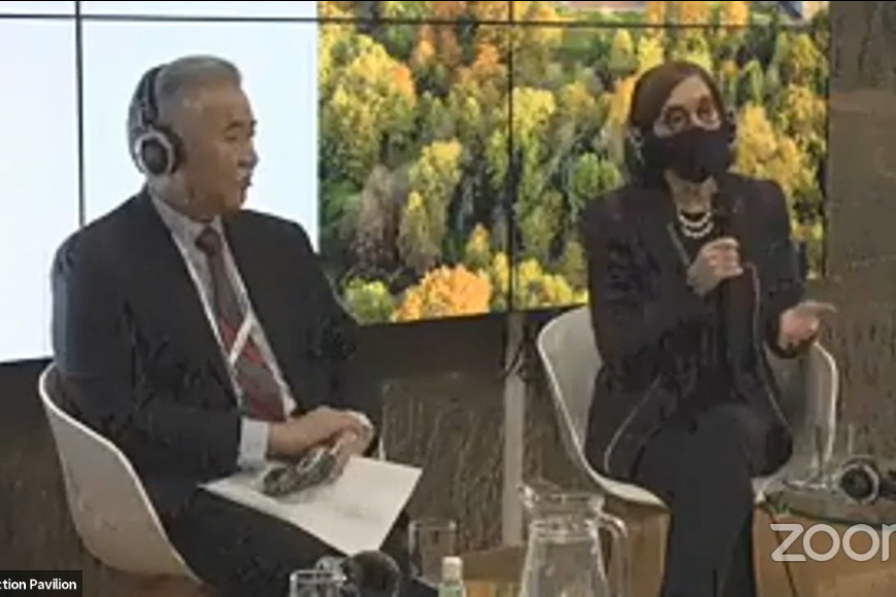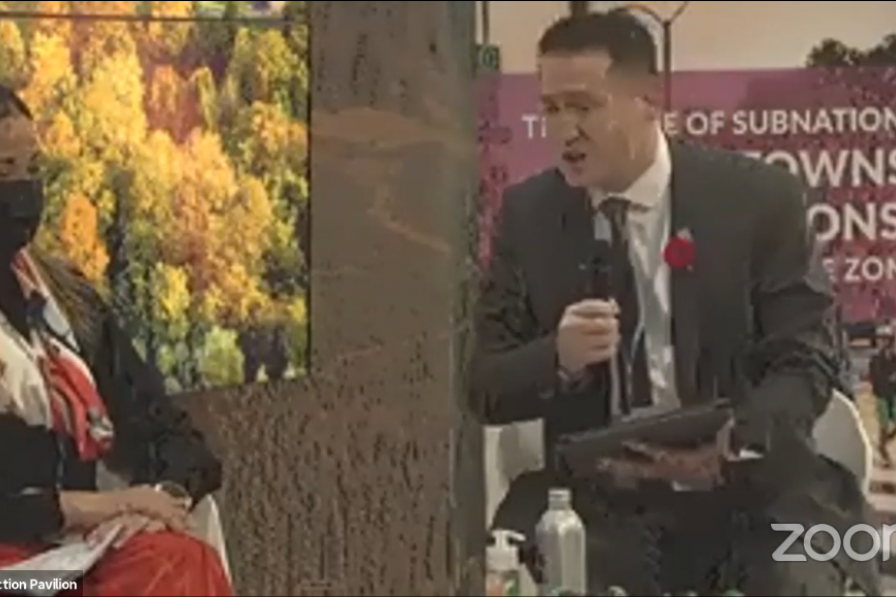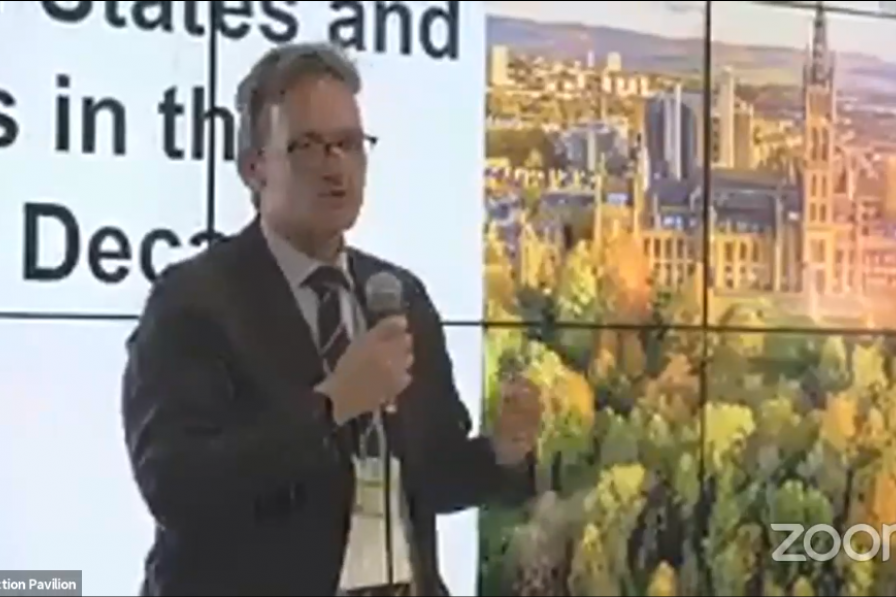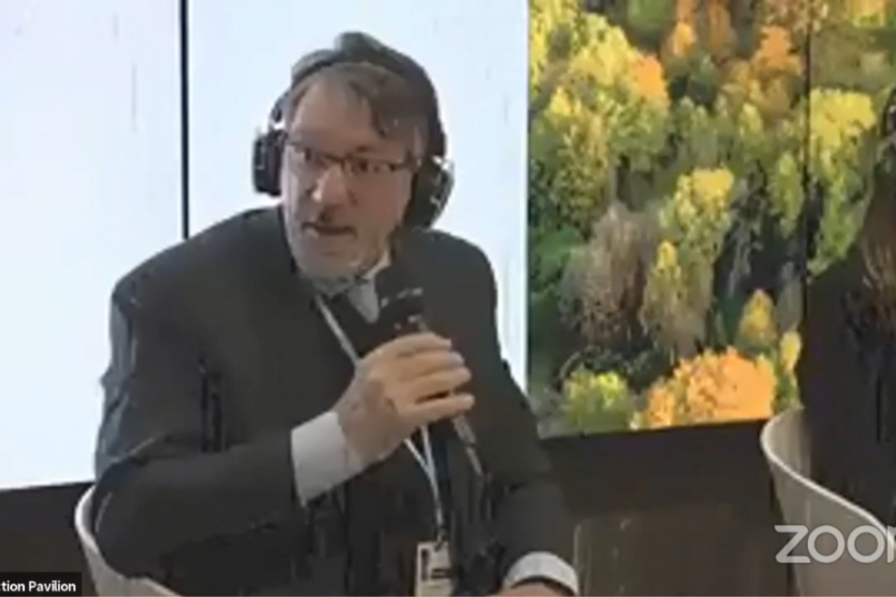Under2: States and Regions for the Climate Decade
Global treaties require local actions. Local and sub-national governments are often responsible for implementing global goals. Bringing together members of the Under2 Coalition provided the opportunity to build and sustain momentum for climate ambition. The “Under2: States and Regions for the Climate Decade” event showcased state and regional actions that are leading climate ambition during “the critical 20s decade,” otherwise referred to as the Climate Decade. Panelists representing local and sub-national governments shared their experiences developing effective policy actions that are moving the needle to halve carbon emissions by 2030, employing a just and equitable spirit.
This Multilevel Action Pavilion at COP 26 hybrid event was convened by ICLEI – Local Governments for Sustainability and the Under2 Coalition Secretariat. The Scottish and Welsh governments co-hosted the event, which highlighted:
- the role of state, regional, provincial, and devolved administration governments in climate ambition;
- actions taken to cut carbon emissions in half by 2030; and
- opportunities to continue together with the "Further, Faster, Together: Under2 Net Zero Leaders Action MoU" and the Glasgow Food and Climate Declaration.
Moderator Tim Ash Vie, Director, Under2 Coalition Secretariat, Climate Group, provided an overview of efforts to align with science and stimulate transformative actions to decarbonize all sectors by 2030. He described the Under2 Coalition, representative of 50% of the global economy and 1.75 billion people across 260 governments, as one of action: "We do the work; our responsibility is to deliver the changes we want to see in the world.” He outlined initiatives, such as: the Future Fund, which empowers subnational governments in developing countries and emerging economies; and the launch of “Further, Faster, Together: Under2 Net Zero Leaders Action MoU.”
Role of States and Regions in the Climate Decade
During the first panel discussion, Kate Brown, Governor, Oregon, US, shared how the experience of devastating impacts of climate change over the past year, including ice storms, fires, and heat waves, have inspired climate policy actions. She described efforts to reduce carbon emissions and move to 100% clean, green electricity by 2040, involving policy, people, and finance. Brown recognized the disproportionate impacts of climate change in low- and medium-income communities, underscoring the need to listen to the voices of and engage with black, Indigenous Peoples, and people of color. She emphasized the need to deliver access to the tools and resources required to deal with the impacts of climate change, citing an example of turbine training programmes in a local community college.
David Ige, Governor, Hawai’i, US, recalled his state’s climate target to be carbon net negative by 2045, saying “we have a sense of community and are all willing to make the commitment and take the actions necessary individually and collectively. We know we can only be successful as a community.” He also highlighted the commitment to join Trillion Trees by protecting or replanting 100 million trees in Hawai’i, which is 10% of the global goal. Ige shared the successful passing of a resolution during the recent IUCN World Conservation Congress for the formation of a new climate action coalition as testament to the power of young people.
Under2 Coalition’s Model for Impact to Support Action
In the second panel discussion, Sayda Rodriguez, State Secretary of Urban Development and Environment, Yucatán, Mexico, referred to local governments as the “gears in a machine that must work together to reach our net zero goals.” She outlined the need to raise finance to achieve regional targets, underscoring the importance of transparency for all of society. Rodriguez also shared local campaigns to bring people to nature, engaging in clean-ups and conversations to help them “feel why they need to act now.”
Eduardo Trani, Sub-Secretary of Environment, State of São Paulo, Brazil, pointed to the Strategic Guidelines and Actions – São Paulo State Climate Action Plan – Net Zero 2050 that was delivered to COP 26, explaining it creates a baseline and brings together important stakeholders. Benoit Charette, Minister for the Environment and the Fight Against Climate Change, Québec, Canada, reviewed progress made through carbon markets, confirming that the successful approach has created revenue and reduced emissions to improve resilience. He looked forward to further regulation of the transport sector to reduce its emissions, referring to the announcement made that Québec, along with the federal government, will provide USD 5 billion to electrify city buses by 2030.
Michael Matheson, Cabinet Secretary for Net Zero, Energy and Transport, Scottish Government, closed the session by drawing attention to progress made by local and state governments in driving ambition in national and global actions. Emphasizing the critical role all governments must play, he said global treaties require local actions. He encouraged all to consider signing the Further, Faster, Together: Under2 Net Zero Leaders Action MoU and the Glasgow Food and Climate Declaration in order to continue to build knowledge and capacity to tackle the climate crisis in a fair and just manner.
CONTACT
Ariel Dekovic | ariel.dekovic@iclei.org
Adel Strydom | adel.strydom@iclei.org
MORE INFORMATION
To receive free coverage of global environmental events delivered to your inbox, subscribe to the ENB Update newsletter.
Selected Images - Under2 Coalition’s Model for Impact to Support Action

From L - R: Tim Ash Vie, Director, Under2 Coalition Secretariat, Climate Group; Eduardo Trani, Under Secretary for Climate Change, São Paulo, Brazil; Sayda Rodriguez, Secretary for Environment, Yucatan, Mexico; and Benoit Charette, Minister of the Environment and the Fight Against Climate Change, Québec, Canada

